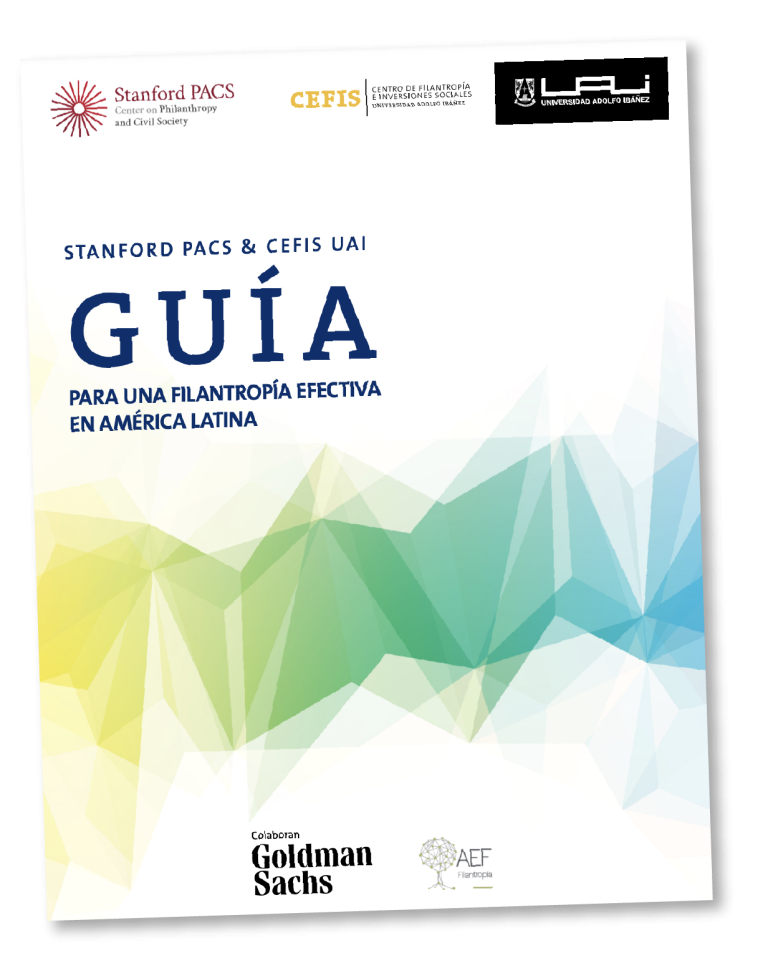Stanford PACS 2022: A Special Progress Report
2022 was a momentous year for Stanford PACS. Like many other organizations in our ecosystem, we were fine tuning a new modus operandi for a world that has changed profoundly and permanently while preparing to celebrate a major milestone — the 20th anniversary of the founding of the Stanford Social Innovation Review. SSIR in many ways exemplifies the founding idea of our Center — assembling a diverse, dedicated community of scholars, leaders, and practitioners to identify, examine, and decode both new and entrenched problems that threaten civil society. We are deeply proud of all that SSIR has accomplished in the two decades since its founding and are continuing to determine new ways to engage our ever growing community to inform policy and social innovation, philanthropic investment, and nonprofit practice.
The exceptional work that SSIR does in curating and disseminating essential knowledge for the social sector writ large complements the ongoing contributions of our faculty, staff, fellows, and student researchers. From very concrete human-focused research on homelessness, health, and anti-racism, to systems-focused initiatives on democracy, and localized guides to improve philanthropy, our work encompasses a broad range of issues and approaches.
To that end, we are pleased to share with you the Stanford Center on Philanthropy and Civil Society’s 2022 Special Progress Report. The report provides an extensive, but not exhaustive, representation of our efforts to address the big questions and pressing needs of this moment through our convenings, publications, research, and other programmatic initiatives.
Stanford PACS by the Numbers
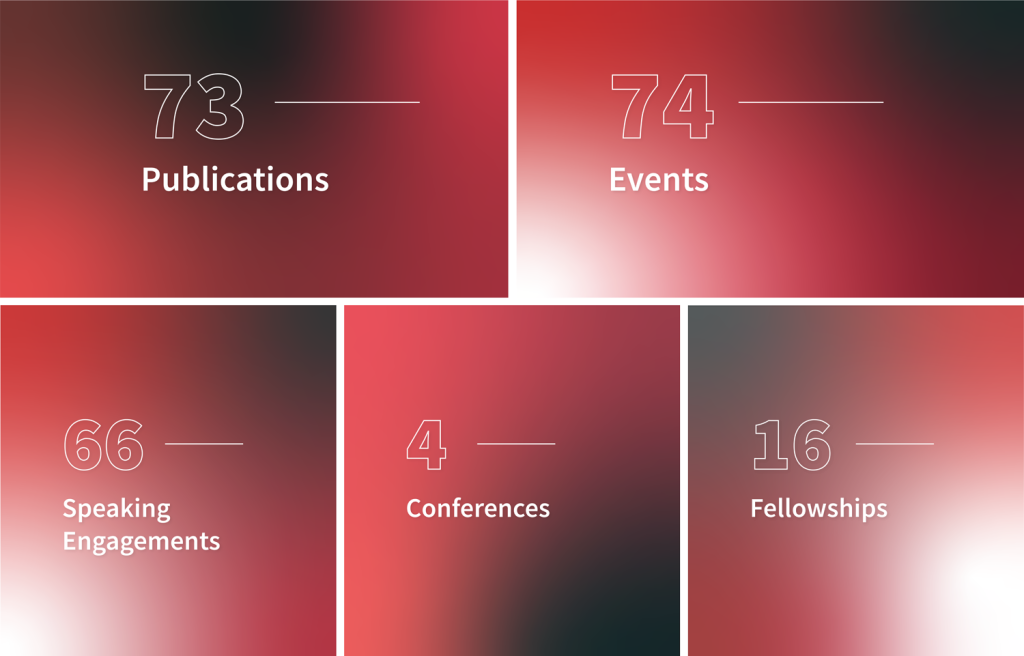
2022-23 Cohort of Fellows
8 PhD Fellows & Postdoctoral Fellows
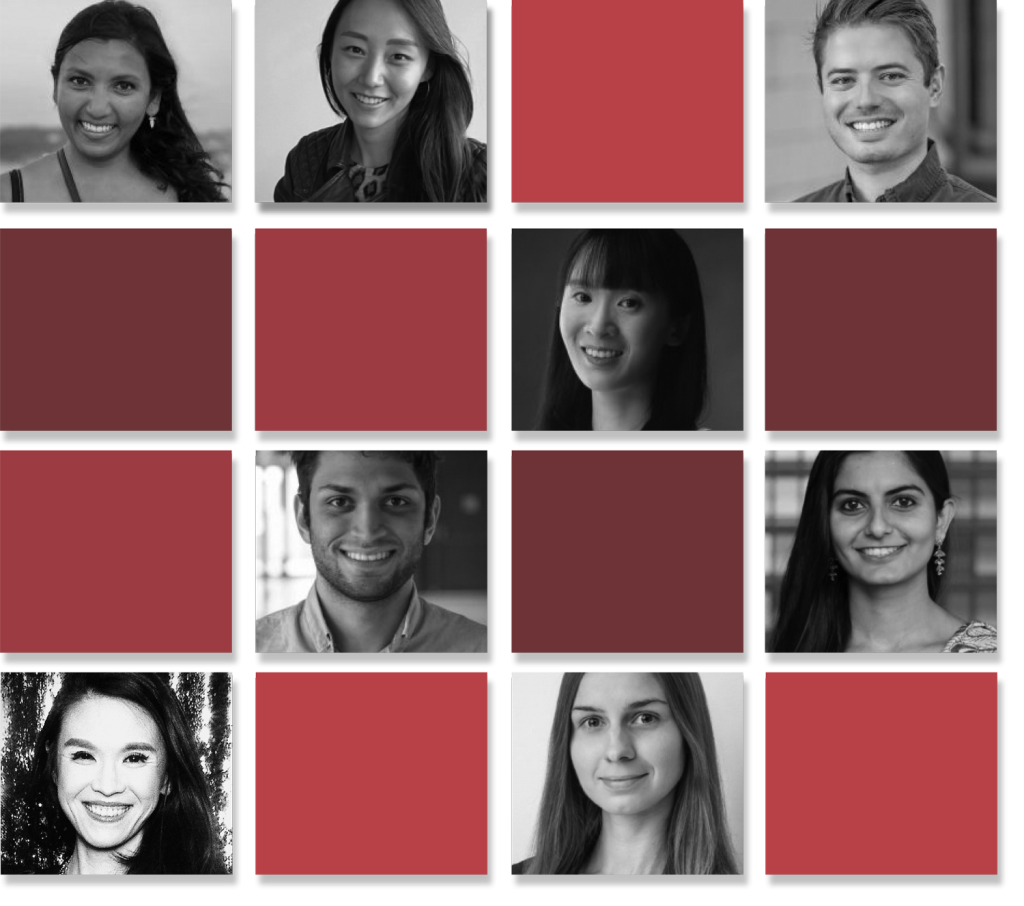
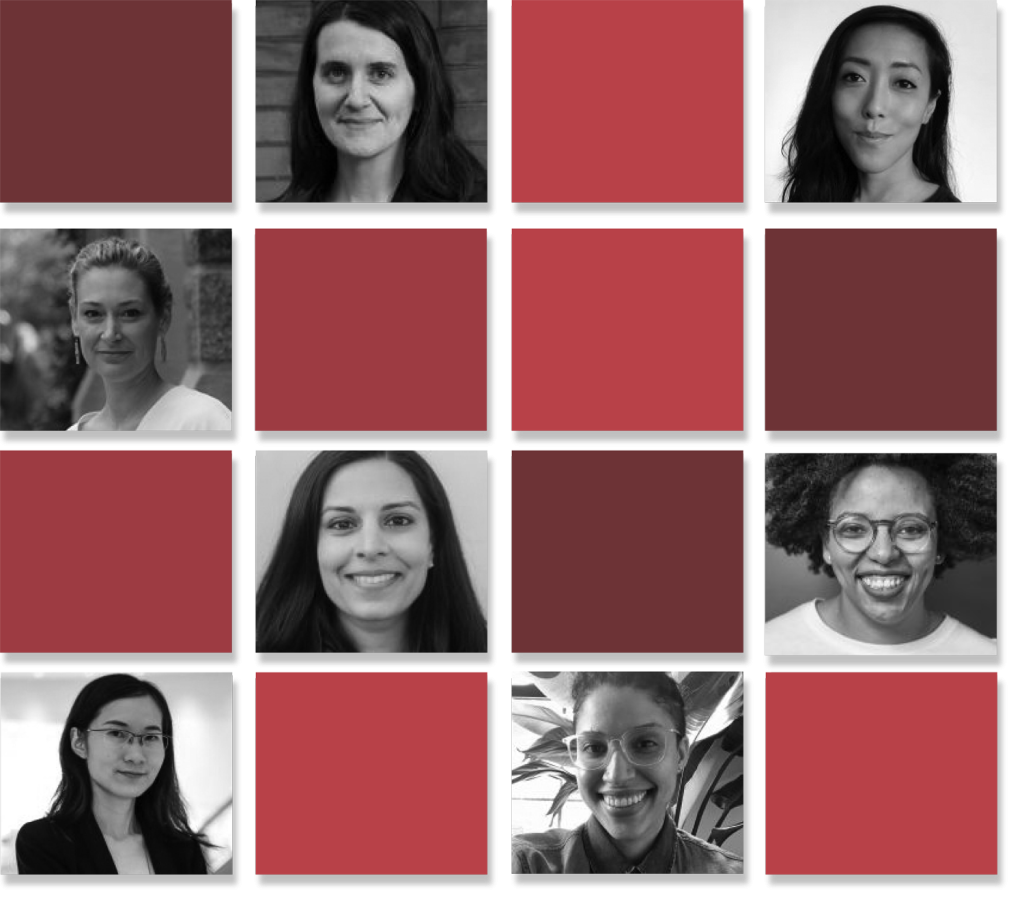
8 Practitioner Fellows
Stanford Social Innovation Review

Through its award-winning magazine and website, webinars, conferences, podcasts, and more, Stanford Social Innovation Review is one of the world’s leading sources for research and practice-based knowledge in the field of social innovation.
In 2022, the English-language print SSIR magazine had a circulation of about 13,000, with nearly 98,000 newsletter subscribers and more than 2.7 million unique website visitors exploring SSIR’s wide range of offerings for and by social change leaders around the world.
SSIR is also continuing its global expansion and now has partnerships with organizations around the world publishing SSIR in six local-language editions: Chinese, Korean, Arabic, Spanish, Japanese, and the latest edition, Portuguese. In 2022, SSIR and partners released 8 international publications (Chinese, South Korean, Japanese) and total visits to international (non-English) digital SSIR platforms surpassed 2.75 million. More than 17,000 readers subscribe to partners’ international (non-English) newsletters.
As a prominent convener of scholars, practitioners, and leaders in social innovation, SSIR engaged nearly 12,000 people at its Nonprofit Management Institute, Frontiers of Social Innovation, China Social Innovation Summit, and Data on Purpose conferences, and at a host of informative and hands-on webinars, workshops, and speaking engagements.
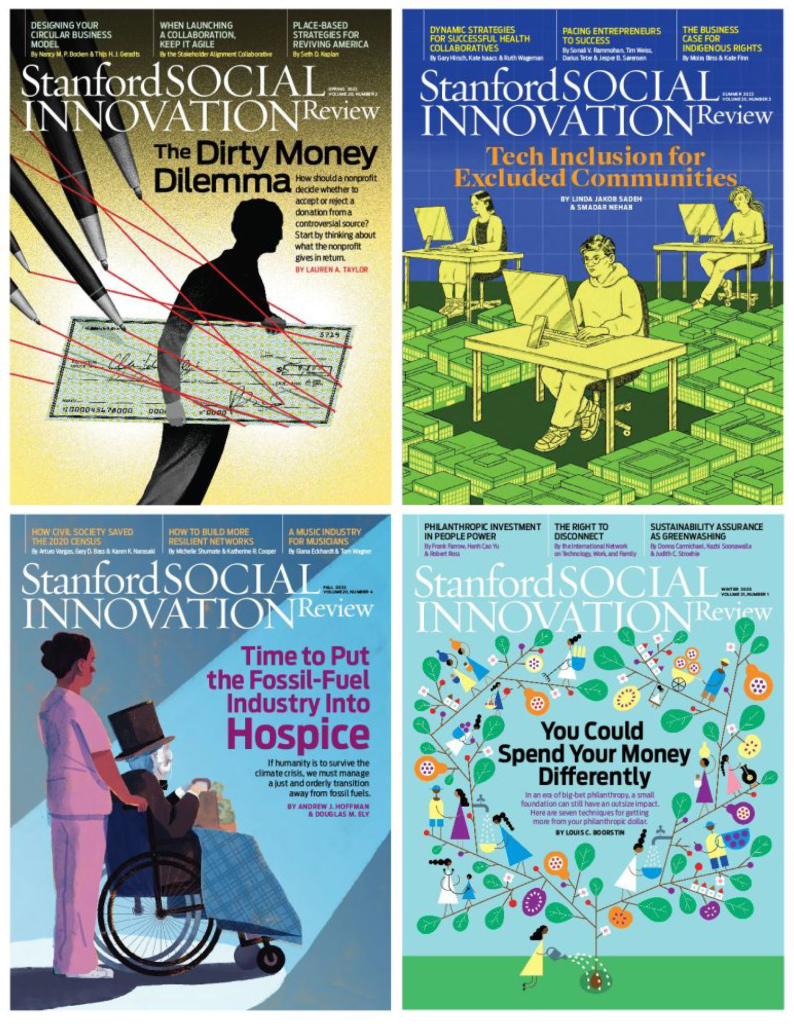
Read the 10 most popular SSIR articles published in 2022:
- The Relational Work of Systems Change by Katherine Milligan, Juanita Zerda & John Kania
- ESG Is Not Impact Investing and Impact Investing Is Not ESG by Jaclyn Foroughi
- Fixing the S in ESG by Jason Saul
- The Most Critical Ingredient in Leadership by Jacqueline Novogratz & Anne Welsh McNulty
- Beyond ‘X Number Served’ by Mona Mourshed
- The Upside of Nonprofit Burnout by John Hagan
- Decolonize Data by Nithya Ramanathan, Jim Fruchterman, Amy Fowler & Gabriele Carotti-Sha
- The Adoption of Innovation by Benjamin Kumpf & Emma Proud
- What Everyone Can Learn From Leaders of Color by Darren Isom, Cora Daniels & Britt Savage
- Protest Movements Could Be More Effective Than the Best Charities by James Ozden

Research Highlights
PACS Faculty Co-Director Robb Willer and his team at the Polarization and Social Change Lab launched a massive, year-long project called the Strengthening Democracy Challenge to test a variety of practical ways to counter anti-democratic beliefs. The Challenge invited academics, practitioners, and industry experts to identify promising, short interventions that could reduce anti-democratic attitudes. The research team then scientifically evaluated them in one of the largest randomized experiments in the social sciences. Results from the experiment, conducted on a national sample of over 32,000 Americans, have been released as a working paper shared online in August 2022, and on the Strengthening Democracy Challenge website. Robb Willer shared the results of the challenge across multiple media outlets, including on Fox News, C-Span, The New York Times, Washington Post, NPR, The Atlantic, MSNBC’s Morning Joe, Fast Company, Yello Politics, and others.


In March 2022, the Digital Civil Society Lab relaunched the Digital Impact website to foster an online community dedicated to the exchange of practical data-related knowledge and expertise. DCSL hosts in-person and virtual conversations that support knowledge sharing, ideation, research, and cross-sector collaboration, and develops ready-to-use tools, policies, and resources for data governance in the social sector.
The Program on Democracy and the Internet (PDI), in partnership with the Center on Democracy, Development and the Rule of Law (CDDRL) at Stanford University, launched a new initiative on Digital Technologies in Emerging Countries: Impacts and Responses (DTEC). The program seeks to examine and share knowledge about the impact of new technologies on countries in Asia, Africa, and Latin America by convening scholars and practitioners whose work focuses on these topics to create more, and better informed, conversations about tech policy issues prevalent in developing countries to facilitate greater knowledge production about major regional trends and observations.
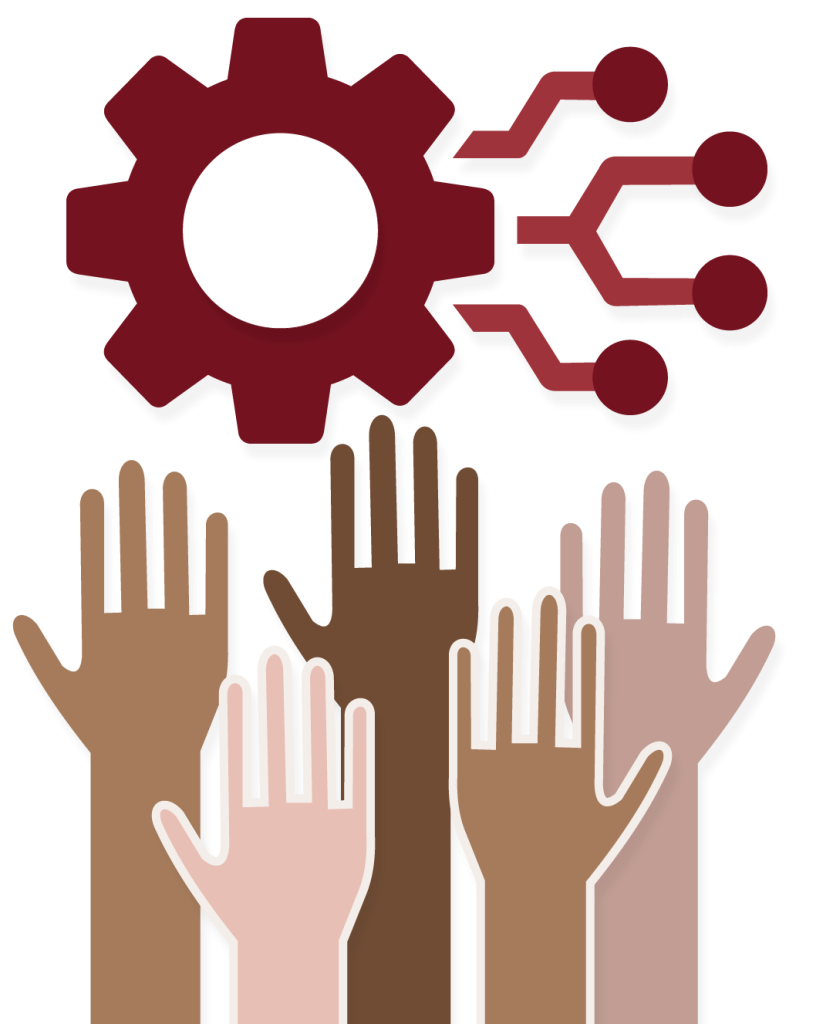
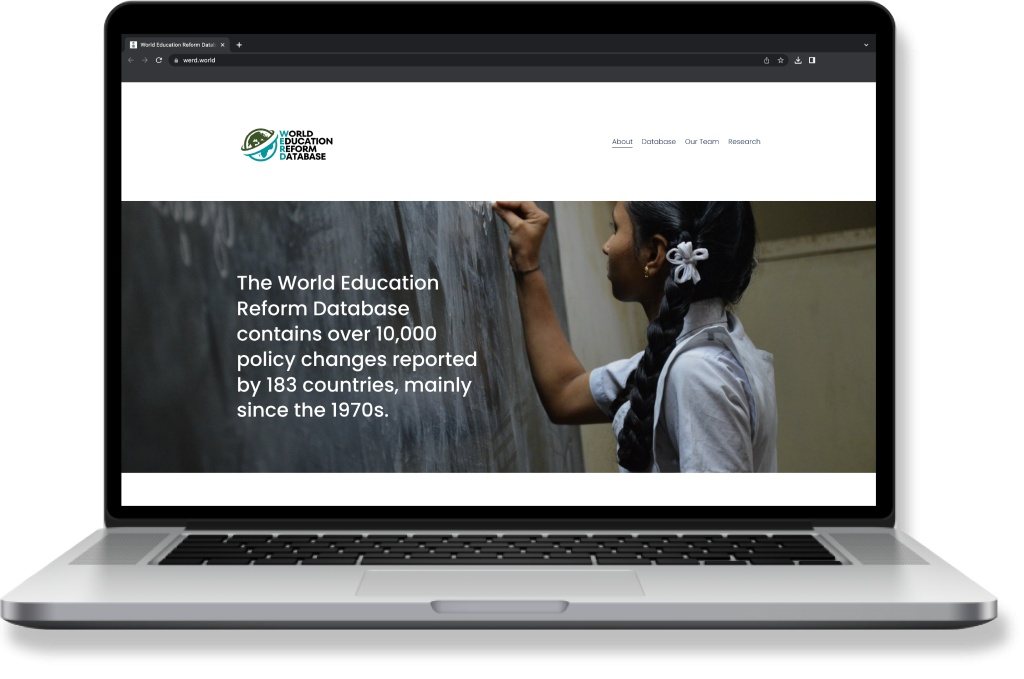
The Global Civil Society and Sustainable Development Lab (GCSSD) at PACS investigates the social and cultural underpinnings of sustainable development problems and solutions and promotes the search for ways humans and the earth can flourish together through the simultaneous pursuit of goals in three domains: economic growth, social inclusion, and environmental protection. Following the UN’s Sustainable Development framework, one of the focal points of the Lab’s work is ensuring inclusive and equitable quality education. In 2022, GCSSD launched the World Education Reform Database, the most comprehensive source of education policy changes around the world, which will be used to support research aimed at improving education systems.
Publications

“Global Neoliberalism as a Cultural Order and Its Expansive Educational Effects” published in International Journal of Sociology, authored by Julia C. Lerch, Patricia Bromley, John W. Meyer. The publication expanded sociological understandings of the cultural dimensions of neoliberalism, by conceptualizing neoliberalism as a broad cultural ideology that has reshaped how we think about people and institutions in all arenas of life, not just the economy.
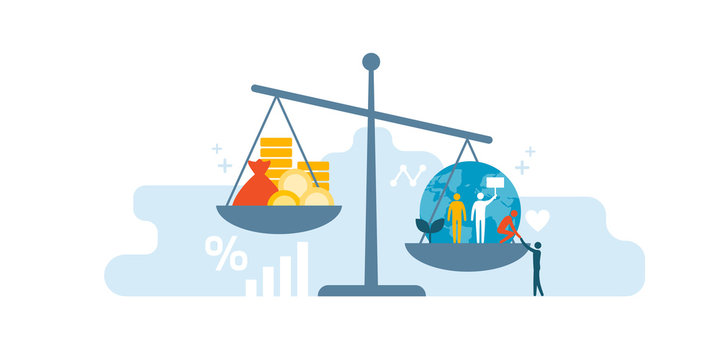

“Interventions Reducing Affective Polarization Do Not Necessarily Improve Anti-Democratic Attitudes” published in Nature Human Behavior, authored by Jan G. Voekel, James Chu, Michael Stagnaro, Joseph Mernyk, Chrystal Redekopp, Sophia Pink, James Druckman, David Rand, Robb Willer. Our Strengthening Democracy Challenge team led by Faculty Co-Director Robb Willer published some of the findings of their mega-study on improving Americans’ commitment to democratic principles of political engagement. The paper highlighted how interventions that reduce affective polarization may not necessarily strengthen democratic attitudes.
In July 2022, the Civic Lives of Cities Lab published a special issue for the journal Global Perspectives titled “The Civic Lives of Cities Around the World.” The issue highlighted the value of the place-based, organizational approach that the CLCL takes in studying nonprofits and civil society around the world. The essays focus respectively on the nonprofit sector in the San Francisco Bay Area, Seattle, Shenzhen, Singapore, Sydney, and Vienna. Each essay utilizes the original and rich data from the Lab’s research to present a summary of the diverse portraits of the local nonprofit community, and then discuss several notable features of the city’s nonprofit sector, such as professionalization, embeddedness in local communities, and the use of digital technology.


“Belief in the Utility of Cross-Partisan Empathy Reduces Partisan Animosity and Facilitates Political Persuasion” is a new study exploring how belief in cross-partisan empathy can reduce partisan animosity and facilitate political persuasion, published in Psychological Science, authored by Stanford PACS PhD Fellow Luiza Almeida Santos (2020-21), co-authored by Jan Voelkel, Robb Willer, and Jamil Zaki.
We published the 14th edition of Philanthropy and Digital Civil Society: Blueprint, an annual industry forecast authored by Lucy Bernholz that discusses the ways we use private resources for public benefit in the digital age. Blueprint 2023 examines the landscape of philanthropy and civil society at a time when “a watched-for future is now the present.” Climate change, attacks on democracy, persistent systemic inequities, widespread illness, and other large-scale challenges are at hand, and digital systems (and our dependencies on them) are both pervasive and hidden in plain sight. With contributions from fellow scholars, practitioners, and artists, Bernholz outlines these pressing challenges, their impacts and intersections across philanthropy and civil society, and important voices, ideas, and pathways for change.
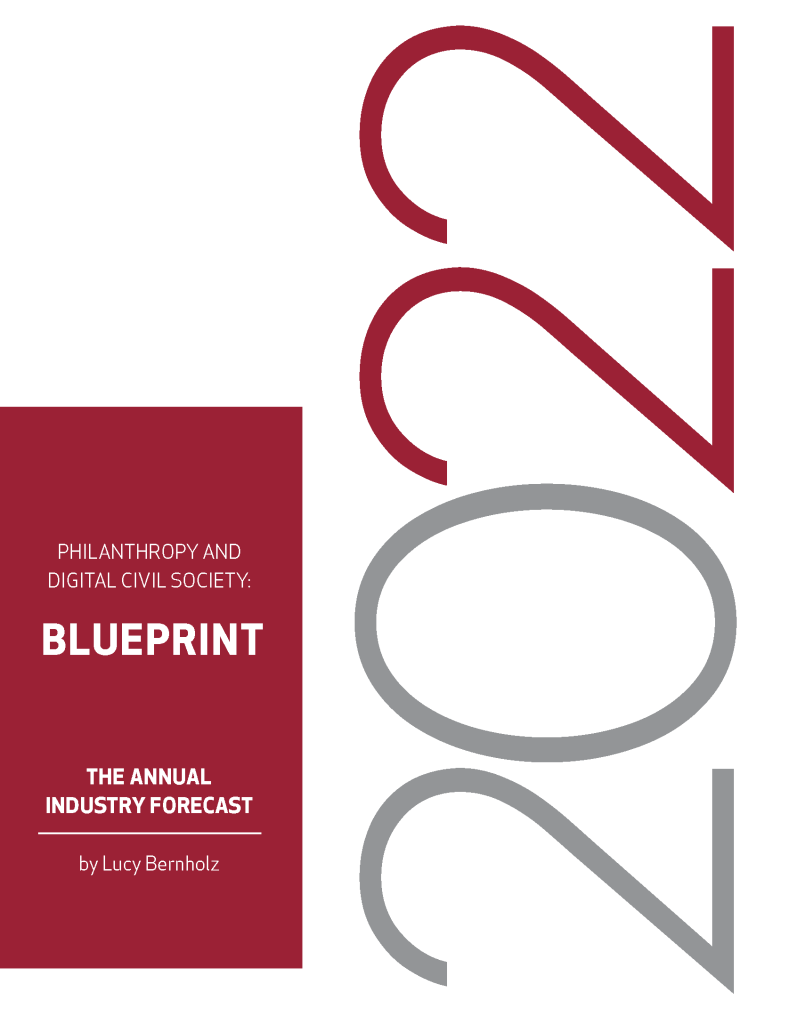

Convenings
On June 9, 2022, Stanford PACS and partner Bloomberg Beta hosted the fourth annual convening of the First Principles Forum (FPF), drawing nearly 90 participants. The First Principles Forum was established in 2019 to convene founders, early employees, and investors in the technology sector to advance and challenge their thinking on giving and impact. The FPF community was born out of the recognition that leaders from the technology sector will be at the forefront of the next generation of transfer of wealth.


The Frontiers of Social Innovation: Power at Play in Social Change conference was hosted online by SSIR from March 22-24, 2022. It brought together nearly 400 senior leaders from nonprofit organizations and foundations, social entrepreneurs and philanthropists, leading academics and researchers, executives of for-profit businesses, and government policymakers from around the world to discuss, debate, and develop solutions that address the most pressing global challenges.
The Nonprofit Management Institute: Bridging the Divide conference was hosted in person by SSIR from September 13-15, 2022 at Stanford University. It brought together nearly 300 nonprofit leaders and noted academics, foundation leaders, and policymakers to explore the latest research and thinking on the best ways for nonprofit leaders to avoid organizational paralysis and leverage today’s economic and political challenges to drive their organizations forward.

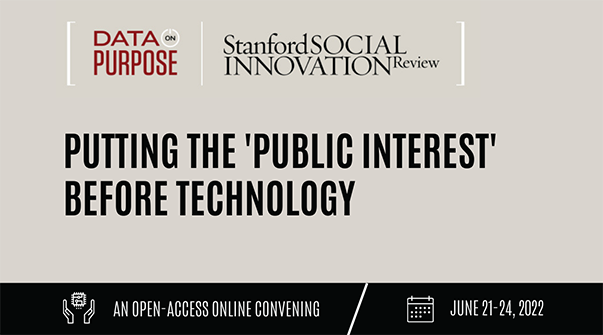
The Data on Purpose: Putting the ‘Public Interest’ Before Technology conference was hosted online by SSIR from June 21-24, 2022 and attracted over 2,000 registrants. It addressed the intersection of technology and public good—the ways that technologies and platforms are creating new opportunities and new challenges, the idea that new disciplines are required to explore and explain these emerging forces and their impact, and the need to rethink our relationships to technology on the global, institutional, and individual level.
Hosted by SSIR in partnership with the Beijing-based Leping Foundation for Social Innovation on December 6-7, 2022, the 2022 China Social Innovation Summit attracted nearly 3,000 social innovators from around the world to provide insights from global changemakers along with direct perspectives on the work of social and environmental change being pursued in China. Designed to support and build the social impact sector in China, this annual conference marked its 10th year of programming in 2022. This year’s gathering explored the theme “New Connectivity Creating New Momentum: Towards a Stakeholder Driven World,” with several subtopics, including Understanding Today’s World, Reimagining Philanthropy, Business for Social Good, and Fostering Well-being.
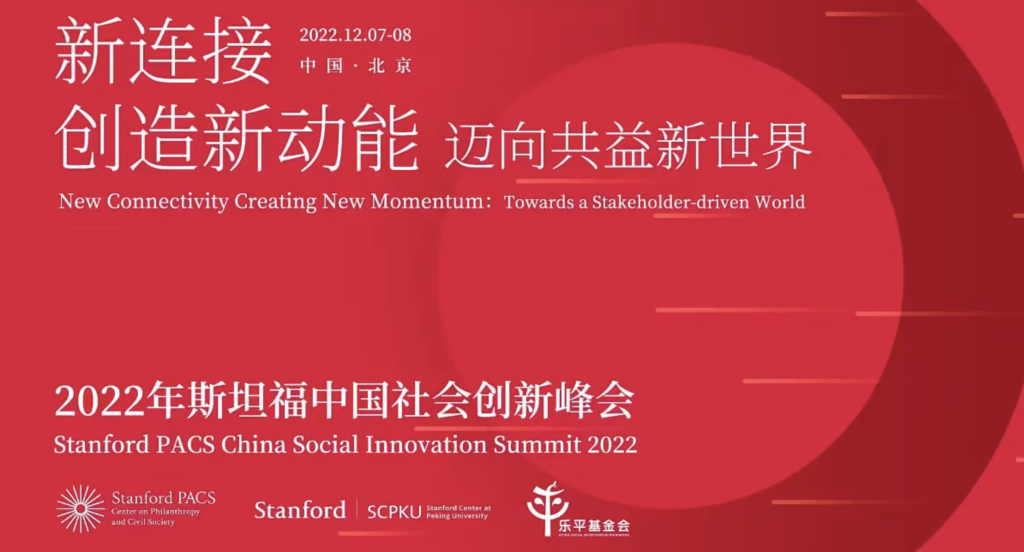
In 2022, Stanford PACS held its Inaugural Book Festival, which celebrated the scholarly milestones of our alumni and fellows. From March 31 to April 2, 2022, we brought together 8 authors for rich conversations about their new books, covering a wide range of topics including democracy, polarization, social inequality, limitations of philanthropy, and political legitimacy. The Book Festival participants were a curated group of 35-40 PACS alumni, current faculty members, PhD fellows, postdoctoral fellows, and a few other Stanford faculty members from across campus. The convening was an extraordinary celebration of the scholarship that we have helped support and inspire since our founding. It stimulated ideas for future research and prompted discussions about the ways we could continue to expand our scholar programs.
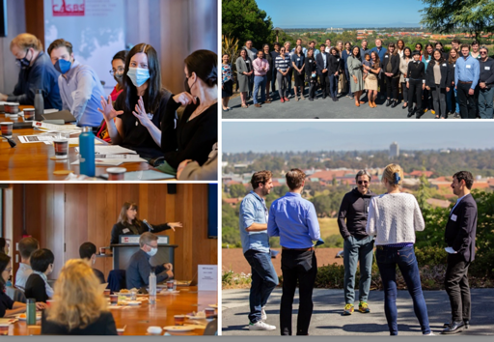
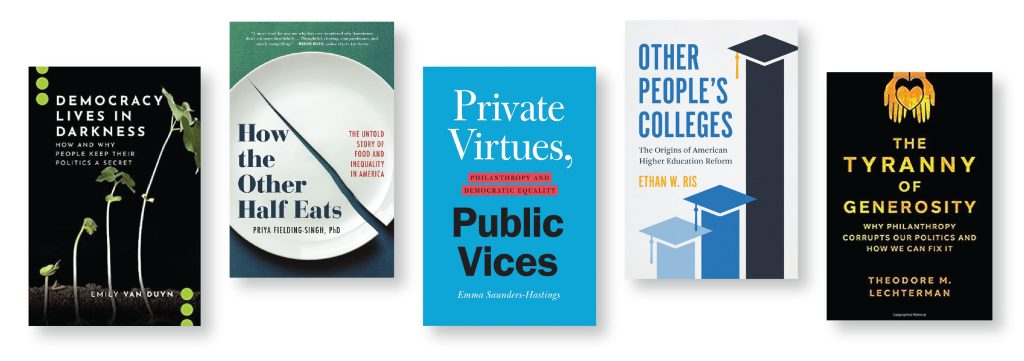

Resources
The Global Innovation for Impact Lab, in collaboration with R4D/IDIA, delivered a training course for the international funder and practitioner community. For the first time, the training took place in Kenya to enable the participation of local parties unable to travel to the EU or US. We are currently preparing to deliver this program to a new cohort in South Africa in April 2024. The program will be co-sponsored by USAID.
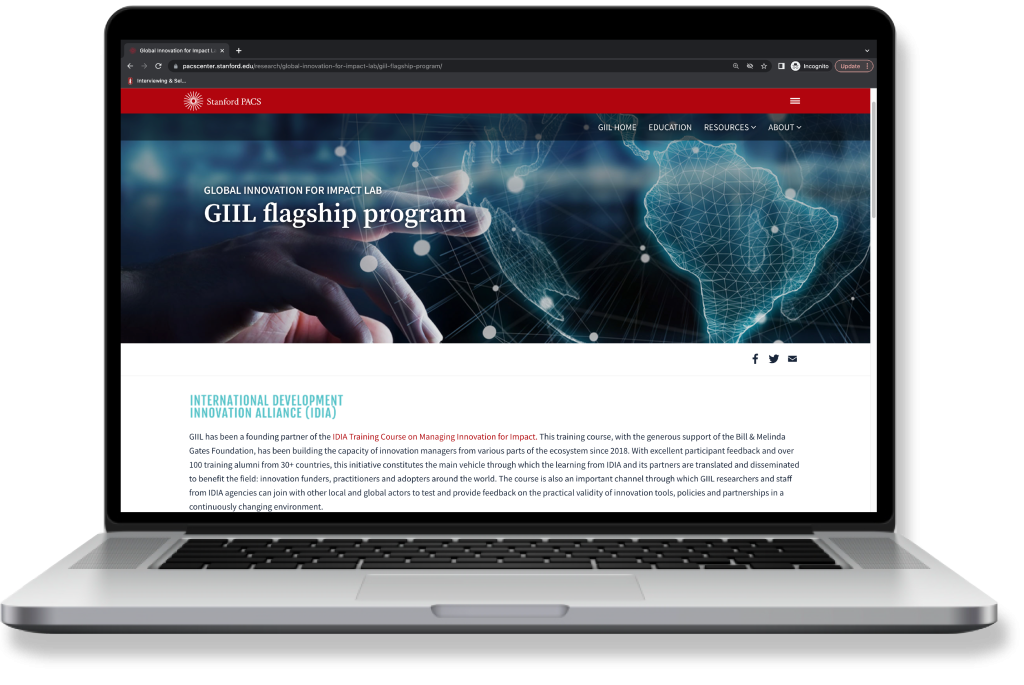
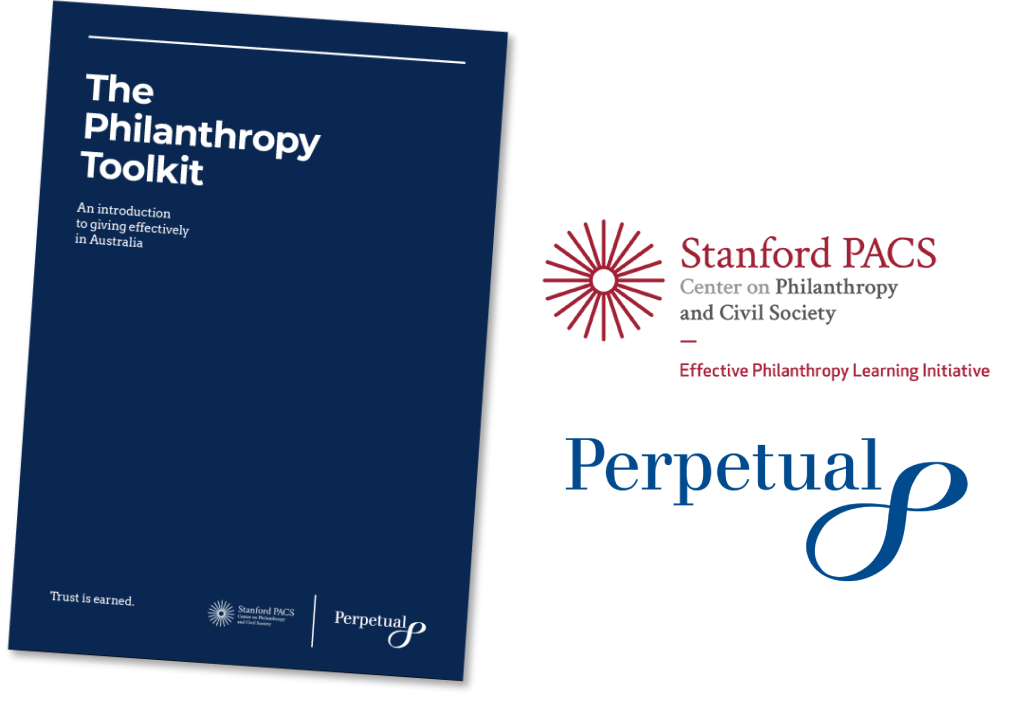
The Effective Philanthropy Learning Initiative (EPLI) built upon the launch of the Australian Philanthropy Toolkit in October 2021 by leading a series of effective philanthropy workshops in Australia with our partners at Perpetual Limited. Over two weeks of workshops, convenings and small group discussions, our team shared tips and guidance from the Australian Philanthropy Toolkit, a localized version of our effective philanthropy guide informed by relevant cultural context, philanthropy trends, and laws.
In partnership with El Centro de Filantropía e Inversiones Sociales (CEFIS) at Universidad Adolfo Ibáñez in Santiago, Chile, Stanford PACS launched the new Spanish-language Effective Philanthropy Guide for Latin America. To help build on PACS’ partnership with CEFIS, SSIR’s Editor in Chief Eric Nee traveled to Chile in June 2022 to speak at the university, where he was joined by PACS’ Board Member Felipe Medina. We hosted a workshop for about 100 members of the Association of Family Foundations in Chile on the challenges of leading foundations during uncertain times. We also hosted an online discussion about how COVID has changed philanthropy with about 200 faculty from universities throughout Latin America.
